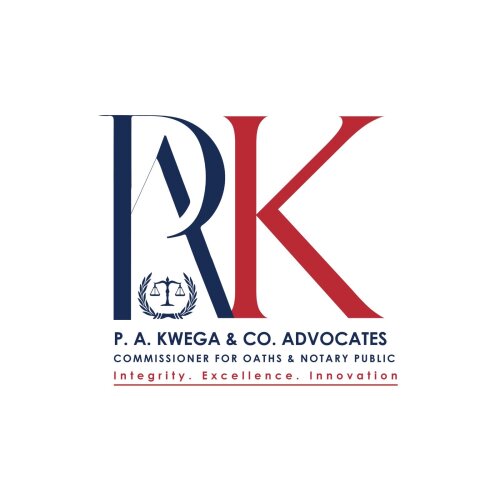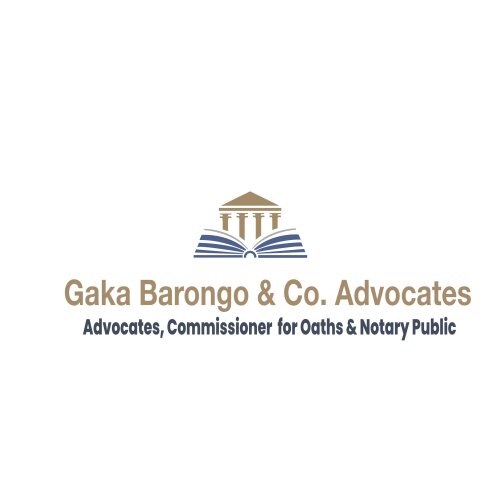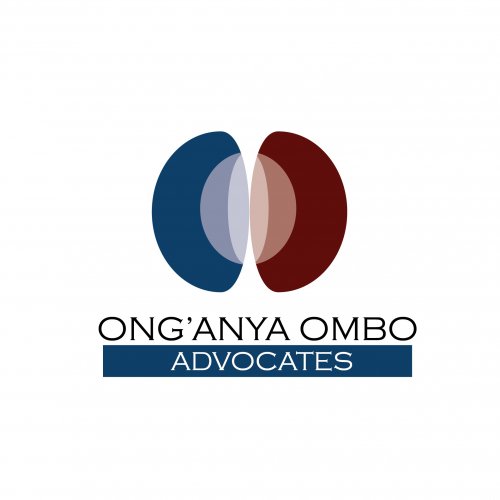Best Conveyancing Lawyers in Kenya
Share your needs with us, get contacted by law firms.
Free. Takes 2 min.
Free Guide to Hiring a Real Estate Lawyer
Or refine your search by selecting a city:
List of the best lawyers in Kenya
Legal guides written by Adroit Law LLP:
- Kenya Launches Digital Nomad Visa: A Gateway for Remote Workers
- Navigating the Payment System License Maze in Kenya
- Navigating the Complexities of Mining Licenses and Permits in Kenya: A Look into Artisanal and Large-Scale Operations
About Conveyancing Law in Kenya
Conveyancing in Kenya refers to the legal process by which the ownership of real property is transferred from one party to another. This process covers activities such as buying and selling land, transferring property rights, registering leases, and other matters involving legal rights to land and buildings. Conveyancing law in Kenya is primarily governed by statutes such as the Land Act, the Land Registration Act, and the Land Control Act. The entire process aims to ensure that property transactions are legally binding, transparent, and that all parties' rights are protected.
Why You May Need a Lawyer
Many people in Kenya seek a conveyancing lawyer to help them navigate complex property transactions. Legal representation is crucial for:
- Buying or selling land or houses
- Transferring property after inheritance or divorce
- Registering or removing caveats and cautions
- Conducting due diligence on property ownership status
- Resolving land disputes or encumbrances
- Dealing with bank or mortgage-related issues
- Reviewing or drafting sale agreements and leases
A conveyancing lawyer helps safeguard your interests, ensures compliance with all legal requirements, and helps avoid fraud or disputes.
Local Laws Overview
Conveyancing within Kenya is shaped by several laws and regulations. Some of the key aspects include:
- Title Verification - All property transactions require strict title searches at the Land Registry to confirm legal ownership and identify encumbrances.
- Land Control Board Consent - For agricultural land, transactions cannot be completed without approval from the Land Control Board.
- Stamp Duty - Purchasers are legally required to pay stamp duty to the Kenya Revenue Authority based on the property’s value.
- Transfer Registration - All property changes must be recorded at the relevant land registry to ensure public notice and legal protections.
- Legal Representation - Engaging a licensed Advocate is recommended as many transactions involve verifying documents, drafting agreements, and court filings.
- Due Diligence - Comprehensive background checks are expected during all property deals to uncover fraud, disputes, or government interests.
- Leasehold and Freehold Rights - Kenyan land can be owned under leasehold or freehold, affecting ownership duration and rights.
Frequently Asked Questions
What is the typical process for buying property in Kenya?
The general process includes searching the property title, negotiating and signing a sale agreement, paying stamp duty, obtaining clearances, registering the transfer at the Land Registry, then handing over possession. A lawyer manages most of these steps.
Do I need a lawyer to buy or sell property in Kenya?
While the law does not strictly require it, engaging a lawyer is highly recommended to handle the legal documentation, due diligence, fraud checks, contract drafting, and registration procedures safely.
How can I confirm a property’s ownership before buying?
A lawyer can conduct an official title search at the relevant Land Registry to confirm true ownership, verify encumbrances, and check for prohibitions or caveats on the land.
What does stamp duty mean in a conveyancing transaction?
Stamp duty is a mandatory government tax paid on property transfers, calculated as a percentage of the property’s value. The Kenya Revenue Authority must endorse all transfer documents after this fee is paid for registration to proceed.
What is the Land Control Board’s role?
The Land Control Board is a statutory body that must approve agricultural land transactions before completion. Failure to obtain LCB consent invalidates such transactions.
Can a foreigner purchase land in Kenya?
Foreigners can acquire leasehold land of up to 99 years but cannot own freehold title or certain agricultural lands except under specific legal frameworks or for special use.
How are land disputes resolved in Kenya?
Disputes may be resolved through negotiation, mediation, or litigation in courts. Specialized tribunals or the Environment and Land Court handle many land matters. Legal advice ensures the best route is taken for resolution.
What are common risks in property transactions?
Risks include fraud, double sales, forged documents, unpaid rates, family disputes, or unclear boundaries. Engaging a lawyer and conducting due diligence significantly reduces these risks.
How long does the conveyancing process take?
It varies, but a straightforward transaction typically takes between 45 to 90 days when all documents, clearances, and consents are in order.
What documents do I need for conveyancing?
Common documents include the original title deed, identification documents, sale agreement, proof of rates clearance, spousal consent, transfer forms, Land Control Board consent if required, and payment receipts for stamp duty.
Additional Resources
For additional help or information regarding conveyancing in Kenya, consider the following organizations and resources:
- Ministry of Lands and Physical Planning - Handles land registration, policy, and public records
- Law Society of Kenya - Directory for finding licensed advocates
- Kenya Revenue Authority - For information on stamp duty and land taxes
- National Land Commission - Overseeing public land and land use policy
- County Land Registries - For title searches, caveat registration, and transaction processing
Next Steps
If you are considering a property transaction or facing a conveyancing issue in Kenya, here are your recommended next steps:
- Gather all relevant documents related to the property in question.
- Identify and engage a conveyancing lawyer licensed by the Law Society of Kenya.
- Request a title search and due diligence report.
- Ensure all necessary consents and clearances are obtained before committing to any agreement.
- Work closely with your lawyer to draft, review, and execute the sale or transfer agreements.
- Pay all applicable taxes and government fees promptly.
- Register the completed transaction at the appropriate land registry for full legal protection.
The right legal guidance is essential for successful conveyancing in Kenya, ensuring that your property rights are secure and safeguarded from potential disputes or fraud.
Lawzana helps you find the best lawyers and law firms in Kenya through a curated and pre-screened list of qualified legal professionals. Our platform offers rankings and detailed profiles of attorneys and law firms, allowing you to compare based on practice areas, including Conveyancing, experience, and client feedback.
Each profile includes a description of the firm's areas of practice, client reviews, team members and partners, year of establishment, spoken languages, office locations, contact information, social media presence, and any published articles or resources. Most firms on our platform speak English and are experienced in both local and international legal matters.
Get a quote from top-rated law firms in Kenya — quickly, securely, and without unnecessary hassle.
Disclaimer:
The information provided on this page is for general informational purposes only and does not constitute legal advice. While we strive to ensure the accuracy and relevance of the content, legal information may change over time, and interpretations of the law can vary. You should always consult with a qualified legal professional for advice specific to your situation.
We disclaim all liability for actions taken or not taken based on the content of this page. If you believe any information is incorrect or outdated, please contact us, and we will review and update it where appropriate.
Browse conveyancing law firms by city in Kenya
Refine your search by selecting a city.

















